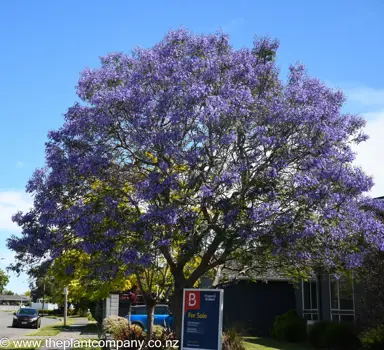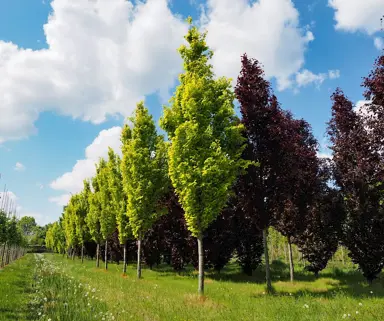Jacaranda mimosifolia
Blue Jacaranda, Purple Jacaranda
Jacaranda mimosifolia, commonly known as the Blue Jacaranda plant, is a tropical looking tree that is widely planted because of its beautiful and long-lasting, blue flowers. Loose clusters of the deep blue-mauve flowers are borne across the tree through spring and summer. The dark green foliage is fern like in appearance, and in warm climates it will remain evergreen, otherwise it will be deciduous. It typically grows to 12 m tall and 8 m wide. Jacaranda mimosifolia is commonly used in avenue plantings to provide an unforgettable sight, grown as a specimen, added to a mixed planting, or included in a ‘tropical’ garden.








